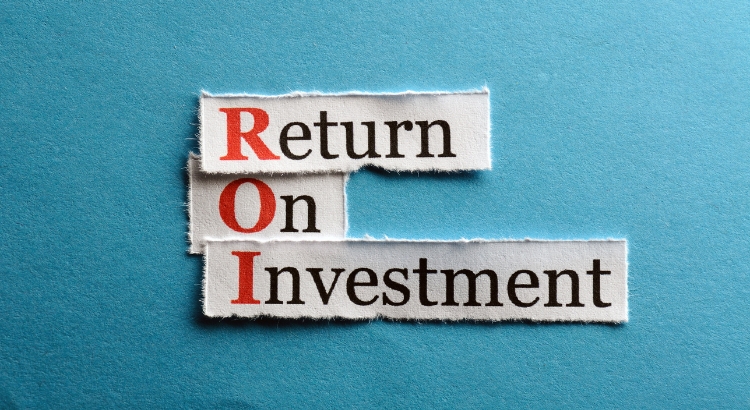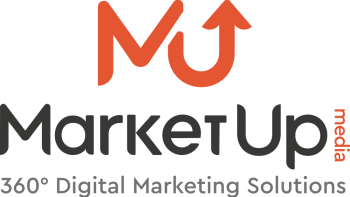
Google Ads for small businesses
Small businesses that want to invest in Google Ads today face two realities: either they actually achieve meaningful results and have a real ROI (return on investment), or they waste resources, their campaigns bring “clicks” but don’t lead to real results.
In 2025, it’s no longer enough to be “on Google”, you have to be there in the right way.
If your Google Ads aren’t converting – calls, enquiries, sales – this in no way means that the advertising medium is not working. On the contrary, it means that something in the campaign setup, targeting and/or strategy isn’t working.
The good news is that with basic principles and regular monitoring, even a small company can achieve measurable results. This is why in MarketUp we have a moto: “You don’t need a big budget, you need smart moves.” And with these moves you’ll see what actually works in 2025.
What’s ROI and why is it so important?
ROI is a measure of the return on investment: How much money your investment brings you compared to what it costs you. So in the context of a Google Ads campaign, ROI measures exactly whether the money you invest actually brings you revenue -revenue from sales, revenue from new customers. For example, if you have invested €500 in a month and this investment has earned you €2,000, then your ROI is positive.
It’s important to measure the performance of a campaign because this is the only way to know whether you are using this valuable tool correctly or not.

From clicks to conversions: What makes the difference
Here, we’ll see exactly what’s about Google Ads for small businesses: What actually works in 2025.
The most common phenomenon that small businesses encounter is that they invest in Google Ads without having a real goal. They choose keywords that may seem “right” in general – such as “skincare products”, “accounting firms”, “children’s clothing” -but without investigating the intent behind these search queries.
The key to Google Ads, however, is intention. So if the user is simply looking for information, they won’t buy. However, if they are looking for something targeted, such as “accountant to start a proprietorship in Piraeus”,” there is a good chance they will convert into a customer.
And then comes the big question: Where does this user end up?
Small businesses send visitors to their homepage, assuming that this is their general presence. But in reality, a generic page like the homepage can confuse the visitor because it doesn’t answer the question they asked, and so this “click” leads to a dead end. Google Ads needs targeted pages -our well-known landing pages- that correspond to the message of the advert with mathematical precision.
If your advert is about “one-piece swimming costumes for girls”, your landing page should take the user directly there and not to a generic page with “swimming costumes for children”.
Let’s see how this works in practice
A small business -an e-shop for handmade jewellery for example- can invest in Google Ads campaigns for a long time without them being successful, even with a fixed budget per month. Lots of clicks, no sales.
What problems do we usually identify in such cases, after a simple check?
- Very general keywords (“necklace”, “bracelet”)
- Ads send users to the e-shop’s homepage
- Conversion Tracking is not tracked.
So once the necessary changes have been made, such as more targeted keywords (“handmade necklaces with stones”), the adverts direct the user to targeted landing pages and the conversions are set correctly, the adverts start to generate sales.
CRO and Google Ads: When the website makes the decisions
The exact message of Google Ads for small businesses: What actually works in 2025.
CRO (Conversion Rate Optimisation) is something we need. Google Ads is not a standalone system, and if it isn’t supported by a well-designed website, the clicks will not bring results.
We see many small businesses investing in advertising, but not in the environment that welcomes the visitor. For example, if you have a slow loading speed, the contact form doesn’t work well on mobile or your website doesn’t exude credibility, then visitors will leave without a second thought. There are many good websites out there, and the user will not give a bad website a second chance because they know they will find what they want below.
The budget issue: “I don’t have much money to invest”
The most common argument put forward by small businesses is that they don’t have a large advertising budget. And the truth is, they don’t need one. If you have a well set up Google Ads account with a relatively small daily budget, you can still achieve conversions -with it- provided you work strategically well.
No lie, the more limited the budget, the more important it is to target advertising and continuously evaluate its results. It’s 2025 and we cannot spread the “clicks” without those who make them becoming your customers.

Real results: When the right moves show up in the numbers
The combination of a Google Ads strategy with the right SEO and the necessary optimisation of a website brings results that companies will see immediately; where they are really needed: In the increase of organic traffic and sales.
It’s very common, especially for small businesses, to start with little or no revenue and achieve results within a few months after targeted improvements:
- Multiplication of organic visits from searches
- Significant increase in revenue from online sales
- Transform your website into a real sales tool and not just an online presence.
Especially for small, local companies, the results can be very impressive, as the competition in some markets does not follow all best practises. And when a company does, it stands out.
It’s not just the budget that can change the course of a Google Ads campaign. It’s about understanding user intent, allocating budget efficiently and improving the visitor experience.
In conclusion
Google Ads campaigns are not just a means of attracting attention on Google. They are an important tool for converting users into real customers. But remember that this doesn’t work on its own.
Keywords should be targeted, you should direct users to targeted landing pages, you should track conversions, and of course you should constantly improve both the advert itself and your website.
So a small company doesn’t need to be a digital expert to achieve its goal. But it does need to know what it’s aiming for, what it promises and how it can be shown to the user. And if all this is done correctly, then the small investment of a Google campaign can pay off in a very special way.
If you’ve made it this far, then you’ve definitely learned Google Ads for small businesses: What actually works in 2025.
See here, Why your business website is more than just “online presence”.
More information, here and here.











